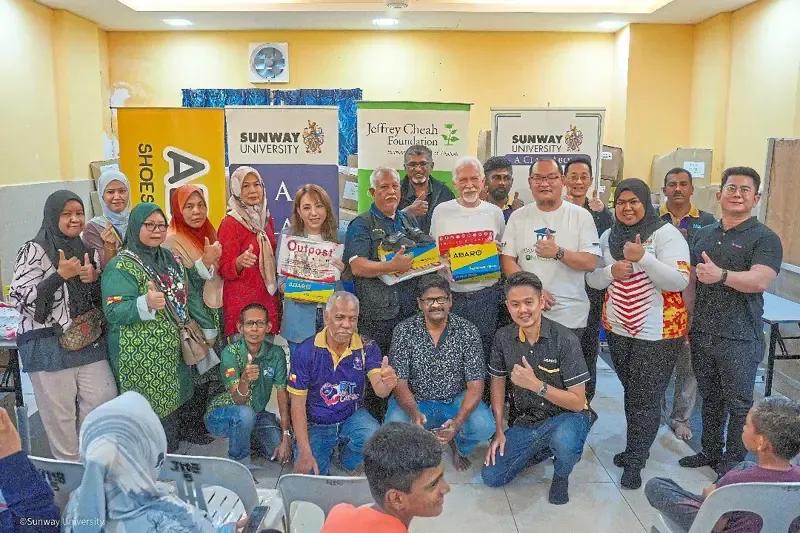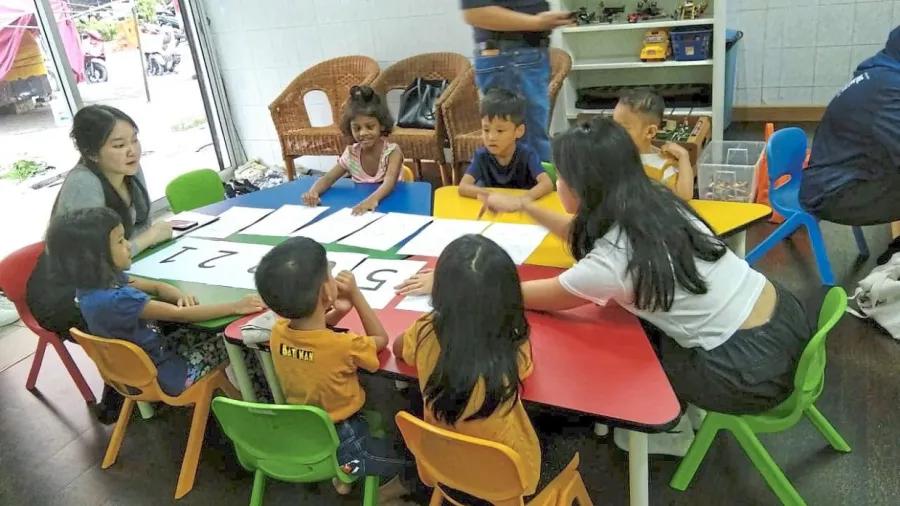Sunway Pioneers Unique Approach to Tackle Urban Poverty

Sunway is embarking on a long-term and multi-pronged project to address urban poverty and other quality of life issues in Desa Mentari, a public housing scheme along the Federal Highway in Klang Valley.
Like many urban poor communities across the globe, they grapple with access to quality education, employment opportunities and faced with many social and health challenges.
Completed in the early 2000s, Desa Mentari comprises 10 apartment blocks of between 12 and 18 storeys that more than 26,100 people call home.
An overwhelming majority of residents in this multi-ethnic community is in the lower income B40 segment of society.
This Sunway initiative is aimed at working with the community at designing a holistic, inclusive and innovative blueprint in addressing these issues.
When completed, it is hoped that this blueprint can be scaled up to address urban poverty at the national and, perhaps, even regional levels. The Desa Mentari initiative is aligned with the Madani policy framework introduced by Prime Minister Datuk Seri Anwar Ibrahim.
A key policy focus of Madani is the eradication of hardcore poverty and ensuring that every community in Malaysia is given the opportunity to improve their quality of life in a sustainable and meaningful manner.

The Desa Mentari initiative is also aligned with the sustainable development agenda adopted unanimously by the United Nations in 2015, comprising the 17 Sustainable Development Goals (UN-SDGs).
Sunway Group founder and chairman Tan Sri Sir Dr Jeffrey Cheah said: “At Sunway, we have fully embraced the UN-SDGs. We have integrated them in all our business practices and decision-making processes.”
“This initiative is also in line with my personal mission to contribute to nation-building and give back to society in an impactful and meaningful way,” added Cheah, who is also Sunway University founder and chancellor.
An inclusive approach to poverty eradication
Sunway University, which is owned and governed by the not-for-profit Jeffrey Cheah Foundation, will lead the initiative and work with Sunway Group, other industry partners, government agencies, civil society groups, global educational institutions, and the community itself.
Sunway University will collaborate with its global academic partners, including Harvard University’s T.H. Chan School of Public Health, as well as University of Cambridge, University of Oxford and Lancaster University in the UK on this initiative.
The Future Cities Research Institute (FCRI), a joint collaborative research platform by Sunway University and Lancaster University, will leverage its considerable expertise in developing liveable and sustainable urban environments for the benefit of Desa Mentari.
These efforts will lead to a comprehensive database for academic institutions and policymakers in Malaysia and the region to address quality of life issues in a rapidly urbanising environment.
As community development is an integral component of the learning experience at Sunway University under its “Campus with a Conscience” initiative, over 3,000 students will contribute to this project each year as part of their curriculum.
In the process, this will nurture next-generation leaders who will be sensitive to the needs of the vulnerable communities.
Each student will have the opportunity to work with the communities, and help develop innovative solutions to address challenges faced by residents in Desa Mentari.
Cheah said: “We need new and innovative approaches to overcome the challenges we face in the world today.
“I always believe that we cannot address the issues of the digital age with an analogue mindset.
“The Desa Mentari initiative is an example of new ways of working to resolve long-standing problems.
“This multi-disciplinary and inclusive approach will help us break down the largely silo-based method of tackling these issues.
“We are all in this together.”
This article was first published in The Star, 7 May 2024.



